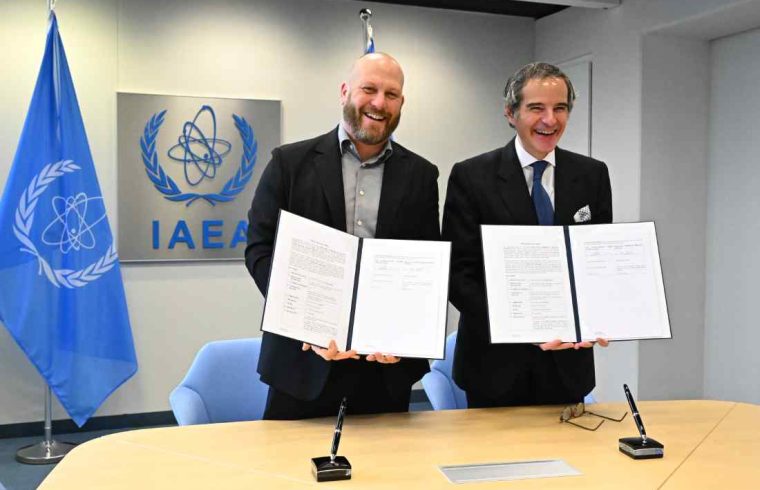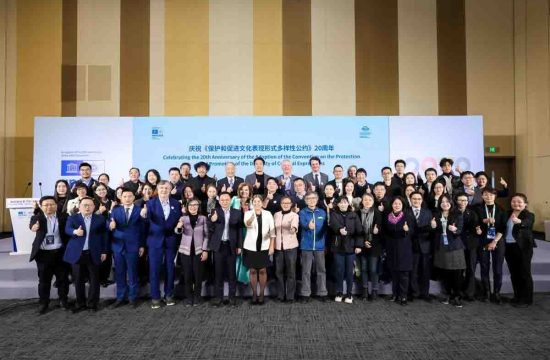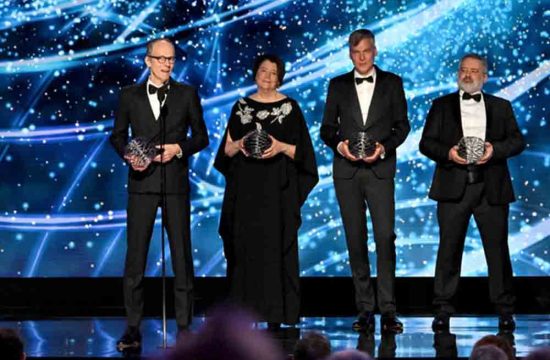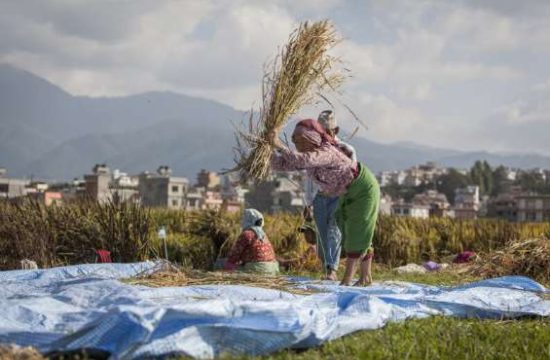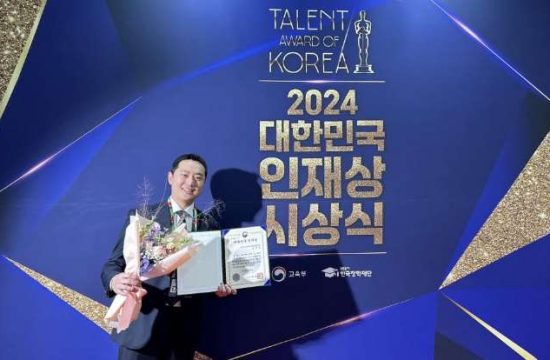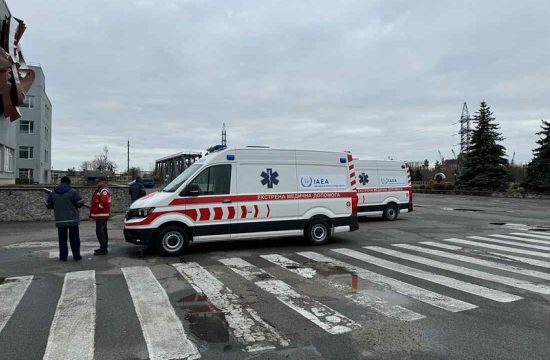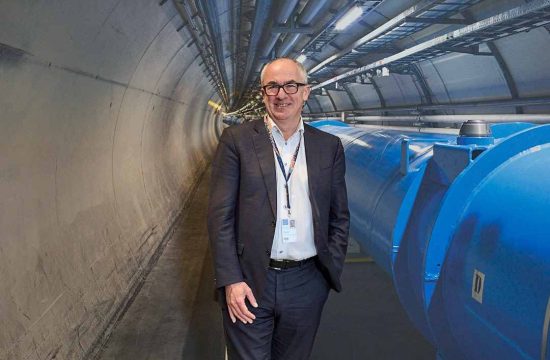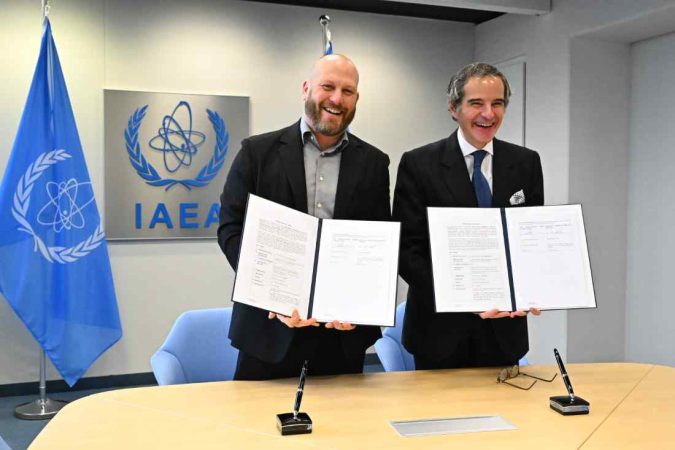
The Discovery Channel is to air a series of short films about nuclear science and technology, made together with the IAEA, as part of a new strategic partnership to educate the public on nuclear-based solutions to global issues.
Today, representatives from Warner Bros. Discovery and the IAEA signed the agreement to launch the educational campaign in 2025, which will air on the Discovery Channel across the entire Europe, the Middle East and Africa (EMEA) region.
“I am very excited about this brand new partnership with IAEA, as this is a great example of how we like to use our media for good,” said Jamie Cooke, General Manager at Warner Bros. Discovery Central East Europe, Türkiye, and the Middle East.
“Every month, Discovery Channel reaches over 40 million viewers across EMEA and we are thrilled that our viewers will get the opportunity to learn more about how nuclear science is being used in innovative ways to improve our lives and advance the environmental sustainability agenda. Next year Discovery Channel celebrates 40 years since its global launch, and the timing for this partnership with IAEA could not start at a better moment.”
Through the new partnership, Discovery will launch ‘Good To Know’, an educational videos series about the benefits of nuclear science and technology. The first short videos, on topics such as nuclear science-based solutions to drought, cancer and plastic pollution, will be released in January across EMEA, both on television and online.
IAEA Director General Rafael Mariano Grossi said: “We are excited to work with the Discovery Channel to help even more people learn about the amazing world of nuclear science. From the IAEA’s unique laboratories, our scientists are using radiation to recycle plastics and create plants that can better withstand climate change, they’re researching new targeted forms of cancer therapy, and much more. In the last couple of years alone, the IAEA sent seeds into space to see if we can develop even stronger variants; we sent scientists to Antarctica to collect accurate data about plastic pollution and we helped conservationists use radiotracers to combat rhino poaching!”
He added: “There are so many fascinating stories to tell about the cutting-edge nuclear techniques through which the IAEA assists countries in the fight against hunger, disease, climate change and energy poverty, to name just a few, and we are very happy to be telling them together with the Discovery Channel.”
IAEA Director of Communications Sophie Boutaud de la Combe added: “We are very proud of the films we make at the IAEA, where we have built a dedicated video team with award winning cinematographers and are delighted that the Discovery Channel will use our original footage to reach an even bigger audience. Accurate and engaging story-telling can do a lot to explain the benefits of nuclear science and technology in our daily lives.”


